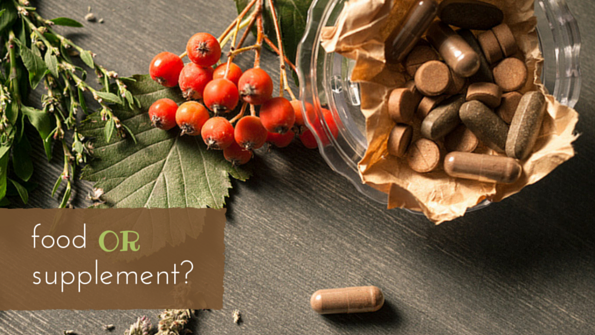Blurred lines: Is it a food or a supplement?
For the latter half of the 20th century, reductionism in nutrition was all the rage. Instead of tomatoes, we wanted the lycopene. Instead of carrots, carotenoids. Not wine, but resveratrol—and maybe I’ll still drink to that.
But that’s so last year. Today’s first world problem is how to get all the wholesome goodness of a multivitamin without having to choke down a horse pill.
Nutrient-dense whole foods are the centerpiece, and full-spectrum herbal extracts give us everything but the water and fiber. Powdered nutrition started as infant formula, moved to meal replacements for dieters, and now includes DIY smoothie additives that contain vitamins, fruits and veggies and more.
Drinks are playing along—astute label readers will note that some have the classic Nutrition Facts box, while others (especially energy drinks) use the Supplement Facts panels instead. What gives? Even the FDA is having trouble deciding whether these nutritional products are foods. But apart from regulators, does anyone really care about those blurred lines—as long as we can get enough nutrients and use them to thrive?
You decide: Is it a food, a drink or a supplement?

